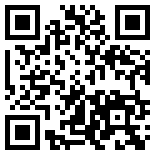關(guān)于邀請(qǐng)別人的常用英語口語,英語學(xué)習(xí)在于應(yīng)用,,日常英語口語對(duì)話則是為實(shí)用了,,實(shí)用英語日常口語屬于非正式口語,。平時(shí)多去英語角,,多與人用英語聊天,創(chuàng)造多的情景對(duì)話,,美聯(lián)英語為您提供關(guān)于邀請(qǐng)別人的常用英語口語,一起來學(xué)習(xí)一下,。 A: Are you free next Saturday? B: I'm not sure about it. I'll have to check. What for? A: We're going to have a picnic in the suburb. B: Oh, I'm sorry I've already made plans and it's too late to change it. Why didn't you tell me earlier?
A:下周六你有空嗎,? B:我不能確定。我看一下,。有什么事,? A:我們準(zhǔn)備到郊區(qū)去野餐。 B:噢,,對(duì)不起,,我已有安排了,而且現(xiàn)在改變計(jì)劃已為時(shí)太晚,。你怎么不早點(diǎn)告訴我呢,?
B: Are you free for our party next Friday evening? A: Friday? Yes, I'm free that evening. B: Well, we're having a few friends in for dinner, and we'd like you and your wife to join us. A: It's very kind of you, Mr. Green. We'd be much delighted to accept your invitation. B: Well, I think I'd better be running along. My wife is waiting for me. A: OK. Have a nice time. Remember me to Mrs. Green. B: I certainly will. Thank you. A: I'm glad I ran into you today. B: Me too. See you. A: See you.
B:你下星期五晚上有空參加我們的聚會(huì)嗎? A:星期五,?好的,,那天晚上我有空。 B:嗯,,我們有幾個(gè)朋友來家里吃晚餐,,我們希望你和你太太能一道來。 A:格林先生,,你真好,,我們很高興接受你的邀請(qǐng)。 B:好了,,我不得不走了,。我太太在等我。 A:好的,,祝你們愉快,,請(qǐng)代我向格林太太問好,。 B:我會(huì)的。謝謝,。 A:很高興今天見到你,。 B:我也是,再見,。 A:再見,。
A: Say, Adam, I'm having a barbecue at my house on December 13th. Would you like to come? B: The 13th? Let me check. (looking at his pocket calendar) Sure, I can make it. A: Great! Come any time after seven o'clock. B: Sounds great! Can I bring anything? A: Nope. Just yourself. I'll give you directions to my house later. B: Fine. A: I'm glad you can come. B: Thanks. I'm looking forward to it. A: Well, I should be going. I'll talk to you later. B: Yeah. See you.
A:我說,亞當(dāng),,我12月13日請(qǐng)大伙兒來我家烤肉,。你要不要來呀? B:13日嗎,?讓我看看,。(看一看小記事本)沒問題,我能來,。 A:太好了,。7點(diǎn)鐘以后,什么時(shí)候都成,。 B:好極了,!你要我?guī)c(diǎn)什么來嗎? A:不用了,。你自己來就好了,。我晚一點(diǎn)再告訴你怎么到我家。 B:好的,。 A:很高興你能來,。 B:謝謝你的邀請(qǐng),我正期待著那一天呢,。 A:那么,,我得走了。再聊,。 B:好的,,回頭見。
A:下周六你有空嗎,? B:我不能確定。我看一下,。有什么事,? A:我們準(zhǔn)備到郊區(qū)去野餐。 B:噢,,對(duì)不起,,我已有安排了,而且現(xiàn)在改變計(jì)劃已為時(shí)太晚,。你怎么不早點(diǎn)告訴我呢,?
B: Are you free for our party next Friday evening? A: Friday? Yes, I'm free that evening. B: Well, we're having a few friends in for dinner, and we'd like you and your wife to join us. A: It's very kind of you, Mr. Green. We'd be much delighted to accept your invitation. B: Well, I think I'd better be running along. My wife is waiting for me. A: OK. Have a nice time. Remember me to Mrs. Green. B: I certainly will. Thank you. A: I'm glad I ran into you today. B: Me too. See you. A: See you.
B:你下星期五晚上有空參加我們的聚會(huì)嗎? A:星期五,?好的,,那天晚上我有空。 B:嗯,,我們有幾個(gè)朋友來家里吃晚餐,,我們希望你和你太太能一道來。 A:格林先生,,你真好,,我們很高興接受你的邀請(qǐng)。 B:好了,,我不得不走了,。我太太在等我。 A:好的,,祝你們愉快,,請(qǐng)代我向格林太太問好,。 B:我會(huì)的。謝謝,。 A:很高興今天見到你,。 B:我也是,再見,。 A:再見,。
A: Say, Adam, I'm having a barbecue at my house on December 13th. Would you like to come? B: The 13th? Let me check. (looking at his pocket calendar) Sure, I can make it. A: Great! Come any time after seven o'clock. B: Sounds great! Can I bring anything? A: Nope. Just yourself. I'll give you directions to my house later. B: Fine. A: I'm glad you can come. B: Thanks. I'm looking forward to it. A: Well, I should be going. I'll talk to you later. B: Yeah. See you.
A:我說,亞當(dāng),,我12月13日請(qǐng)大伙兒來我家烤肉,。你要不要來呀? B:13日嗎,?讓我看看,。(看一看小記事本)沒問題,我能來,。 A:太好了,。7點(diǎn)鐘以后,什么時(shí)候都成,。 B:好極了,!你要我?guī)c(diǎn)什么來嗎? A:不用了,。你自己來就好了,。我晚一點(diǎn)再告訴你怎么到我家。 B:好的,。 A:很高興你能來,。 B:謝謝你的邀請(qǐng),我正期待著那一天呢,。 A:那么,,我得走了。再聊,。 B:好的,,回頭見。



